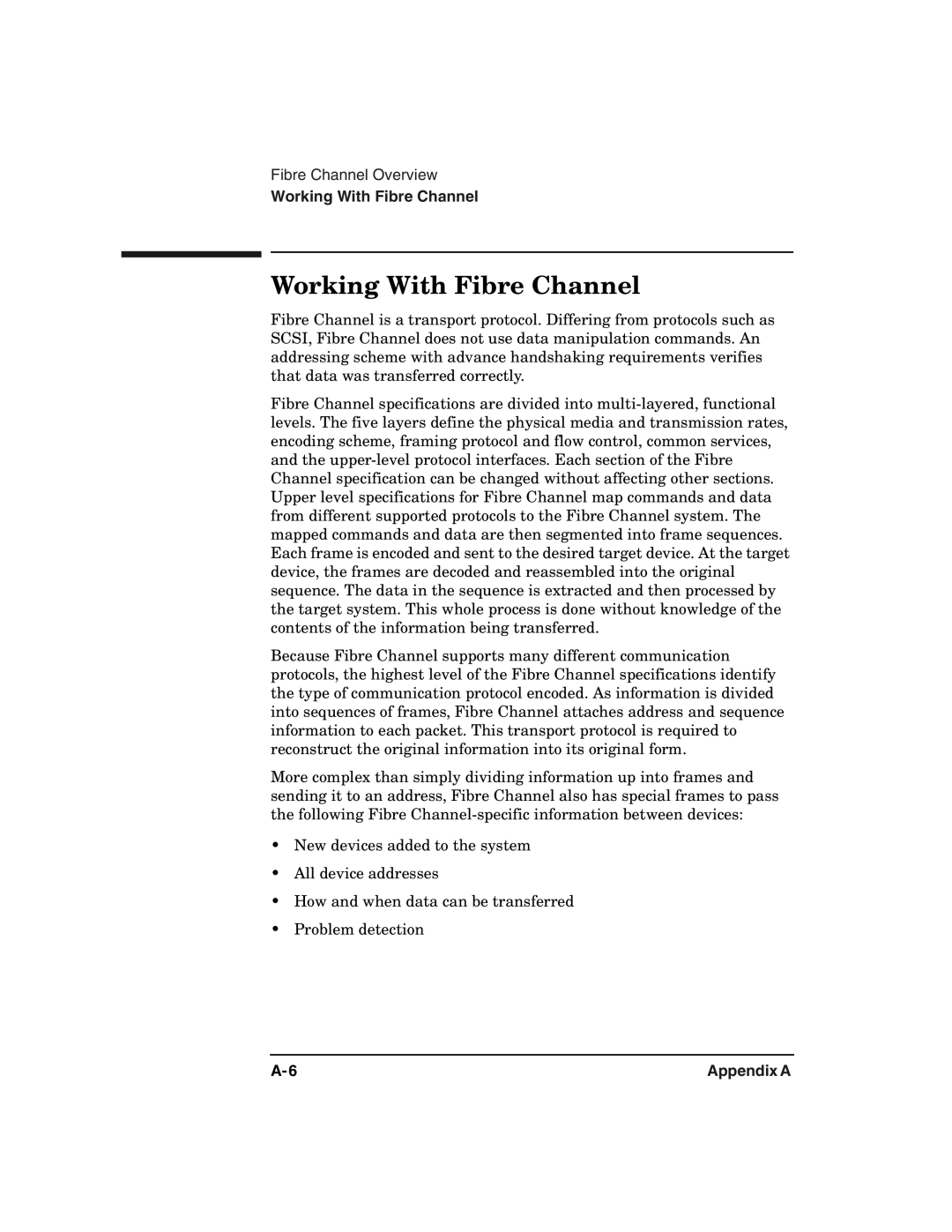
Fibre Channel Overview
Working With Fibre Channel
Working With Fibre Channel
Fibre Channel is a transport protocol. Differing from protocols such as SCSI, Fibre Channel does not use data manipulation commands. An addressing scheme with advance handshaking requirements verifies that data was transferred correctly.
Fibre Channel specifications are divided into
Because Fibre Channel supports many different communication protocols, the highest level of the Fibre Channel specifications identify the type of communication protocol encoded. As information is divided into sequences of frames, Fibre Channel attaches address and sequence information to each packet. This transport protocol is required to reconstruct the original information into its original form.
More complex than simply dividing information up into frames and sending it to an address, Fibre Channel also has special frames to pass the following Fibre
•New devices added to the system
•All device addresses
•How and when data can be transferred
•Problem detection
Appendix A |
